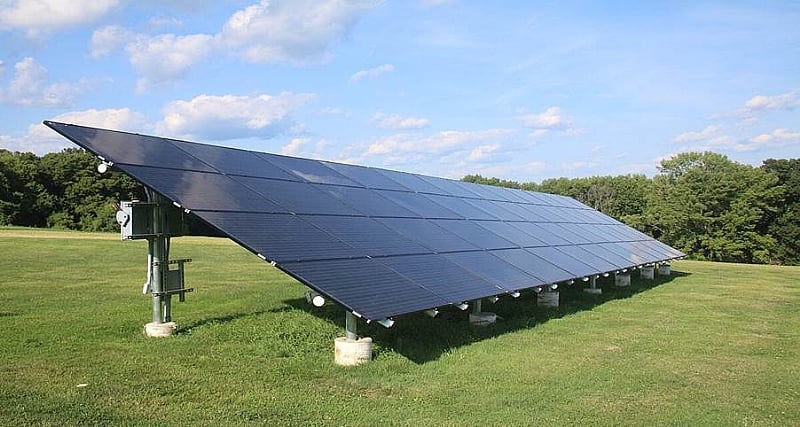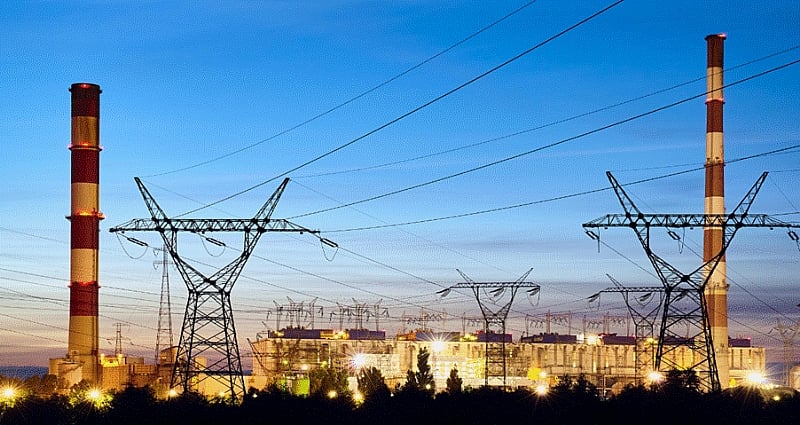There is no doubt that Nigeria is Africa’s most populous country. There is no doubt also that the country is blessed with vast natural resources. That is why it is often called the “giant of Africa.” But when it comes to electricity generation and supply, this giant seems to be wobbling on unsteady feet. It is astonishing, even tragic, for instance, that while millions of Nigerians live year-in-year-out without electricity, Nigeria continues to supply the same commodity to neighbouring countries. It is even more ironical that she is now struggling to recover payments from these customers.
Recent reports from the Nigerian Electricity Regulatory Commission (NERC) highlight this stark irony. In the first quarter of 2025, Nigeria invoiced six international electricity customers a total of $17.24 million. Of this, only $5.8 million which is approximately 34% of the amount was recovered. Niger Republic was the only customer that fully paid its bill of $3.03 million. In contrast, Benin and Togo accounted for a combined debt of over $11 million. Togo made no payments at all, while Benin only partially settled its invoice. This recurring pattern of debt settlement raises deep questions about Nigeria’s energy policy in the context of prioritising of its own citizens’ welfare.
Nigeria’s electricity crisis is not new of course. The country has an installed generation capacity of around 13,000 megawatts (MW), but struggles to distribute even 4,000–5,000 MW consistently due to various technical, infrastructural, and managerial bottlenecks. For a country of over 200 million people, this is woefully inadequate. According to the World Bank, about 85 million Nigerians, nearly 43% of the population, have no access to grid electricity. Frequent power outages are the norm everywhere, even in urban areas. Many businesses and households are literally forced to rely heavily on expensive and polluting generators. The economic implications are dire: productivity is tarnished, giving way to high cost of goods and services and its attendant stunted industrial growth.
Against this backdrop, Nigeria’s continued export of electricity to countries like Benin, Togo, and Niger seems paradoxical. While the principle of regional cooperation and economic integration under ECOWAS is laudable, the harsh reality is that millions of Nigerian families are suffering daily from lack of basic electricity supply. The recent NERC report underscores the financial strain posed by unpaid debts. Benin and Togo, despite benefitting from bilateral agreements for stable power supply, have not honoured their obligations. Togo, in particular, has made no payment for its consumption in the first quarter of 2025.
These debts do not merely represent lost revenue, they also translate into lost opportunities to reinvest in and strengthen Nigeria’s ailing power sector. With power companies already struggling due to liquidity issues, such external debts exacerbate the weakness of an already fragile system. Moreover, the inability to enforce payments or apply penalties weakens Nigeria’s negotiating position and questions the prudence of such international arrangements. Why must the Nigerian government continue to supply power to defaulters while their own domestic needs remain unmet?
In a parallel development that further exposes Nigeria’s energy policy contradictions, President Bola Tinubu’s administration allocated ₦10 billion in the 2025 budget for the “solarisation of the villa with a solar mini-grid” at Aso Rock, Abuja. The presidential villa reportedly incurs an annual electricity bill of nearly ₦47 billion, a staggering amount that could fund multiple community electrification projects across the country. The move to install solar energy at Aso Rock is presented as a cost-cutting and sustainability measure. While the decision to embrace renewable energy is commendable in principle, it is seen by many as symbolic of a disconnect between the leadership and the lived realities of ordinary Nigerians. They see the elite enclave secure reliable power while vast swathes of the country remain in darkness. That is not leadership by example. The contrast is stark: while the presidency seeks energy independence, millions of citizens cannot power basic necessities. The optics of this move, especially when juxtaposed with unpaid electricity debts from neighbouring countries, paint a troubling picture of misplaced priorities.
The origins of Nigeria’s power sector woes trace back to decades of underinvestment, poor grid maintenance, and systemic official corruption. Post-independence, Nigeria invested heavily in large-scale hydro and thermal plants, but over time, these assets deteriorated due to neglect and mismanagement. The unbundling of the Power Holding Company of Nigeria (PHCN) in 2013 was intended to usher in a new era of private sector-led electricity generation and distribution in the country. However, the expected transformation continued to be slow, marred by regulatory inconsistencies, inadequate infrastructure, and financial insolvency among operators. In the face of these internal challenges, Nigeria continued its regional electricity commitments under the West African Power Pool (WAPP). While the rationale was to foster regional integration and economic interdependence, the glaring domestic shortages make the continuation of such exports quite controversial.
In theory, electricity exports can be economically beneficial. They provide foreign exchange, strengthen diplomatic ties, and create markets for excess power generation. But Nigeria’s situation is different: it does not have surplus power. Instead, it operates a deficit, with exports effectively subtracting from an already insufficient supply, hoping to be seen thereby as the region’s “big boy”, the giant of Africa.. When countries like Benin and Togo fail to pay, the supposed economic benefits evaporate. Rather than contribute to national income, these debts become a drain on an already stressed sector. Furthermore, these unpaid debts hinder investment in critical areas like transmission upgrades, rural electrification, and alternative energy development. The cost of these missed opportunities is borne by Nigerian citizens who continue to endure blackouts and exorbitant energy costs.

Community Solar
Reliable electricity supply is not just an economic issue, it is a matter of national security and dignity. It affects healthcare delivery, education, industrialisation, and overall quality of life. The current scenario undermines national pride. A country known for its oil and gas wealth, rich natural resources, and entrepreneurial spirit is unable to meet its basic energy needs, yet supports its neighbours’ power demands. This creates a situation where Nigerian citizens feel neglected and undervalued. As one Lagos resident lamented during an interview: “We cannot even charge our phones without generator noise, yet they are exporting light to other countries. It is like feeding your neighbour’s children while your own starve.”
Even the Tinubu administration’s decision to solarise the presidential villa underscores broader leadership contradictions. On one hand, there is an acknowledgment of the need for reliable and sustainable power. On the other, there is a continued failure to address systemic issues preventing adequate electricity access for ordinary Nigerians. Experts argue that the government ought to prioritize the local needs of its people over external commitments. This does not mean abandoning regional partnerships but recalibrating them to ensure they do not compromise domestic welfare. Additionally, there is a need for greater transparency and accountability in the power sector. The persistence of unpaid international debts suggests weak contract enforcement and poor diplomatic follow-through. Strengthening these areas is essential if Nigeria is to assert its interests effectively.
Beyond economic metrics, the human cost of Nigeria’s electricity crisis is profound. Students studying by candlelight, hospitals relying on diesel generators during critical surgeries, and small businesses folding under the weight of energy costs are daily realities across Nigeria.
One other very important thing we must consider is that power poverty perpetuates inequality. While rich families can afford alternative sources like solar installations, inverters, and diesel generators, the poor families remain at the mercy of erratic public supply. Moreover, unreliable electricity stifles innovation and entrepreneurship. Many Nigerian youths with brilliant tech ideas are discouraged from showcasing their talents by their inability to power their devices consistently. Their unfulfilled ambitions have the proclivity of frustrating the country’s global competitiveness and discouraging foreign investment.
Nigeria’s electricity dilemma demands bold, honest, and sustained reforms. Key steps should include prioritising domestic supply. Before extending power to neighbours, Nigeria must ensure a stable and sufficient supply for its citizens in every single village. This may require renegotiating or temporarily suspending certain export agreements. There will also be a need to strengthen regulatory enforcement. NERC and other agencies must enhance their capacity to enforce contracts and collect debts from international customers or introduce sanctions that would deter their indebtedness to the country. The government must be willing to invest in infrastructure. Modernising transmission and distribution networks is critical. Without reliable infrastructure, even increased generation capacity will not translate into improved supply.
Nigeria must encourage decentralised solutions. Supporting mini-grids, rooftop solar, and community-based energy projects can help bypass some of the systemic challenges of its aging national grid. And let us not forget that the promotion of transparency is very fundamental. The government must adopt open procurement processes, audit sector finances rigorously, and prosecute corrupt practices to restore public confidence. Above all, the government must commit to building local capacity. Developing local industries to manufacture and maintain energy equipment will create jobs and reduce reliance on imports.
Nigeria stands at an energy crossroads. The choice is stark: continue on a path of policy contradictions and energy poverty, or chart a new course that prioritises the welfare of the people of Nigeria while you engage responsibly with neighbours. President Tinubu’s solarisation of Aso Rock could serve as a symbolic example of embracing renewable energy at all levels of the Nigerian society. Instead, it has become a reminder of the disconnect between government and the governed. For the millions of Nigerians living in “darkness”, electricity is not a luxury, it is a lifeline. It powers economic activities, ensures safety, and sustains dignity. The irony of exporting electricity while neglecting local needs cannot persist if Nigeria is to fulfill its promise as Africa’s giant. The time for platitudes has passed. Concrete action, accountability, and a citizen-first approach must define Nigeria’s energy policy going forward. Only then can the country truly shine, not just as a regional power exporter, but as a nation that understands the need to empower its own people first and foremost.


